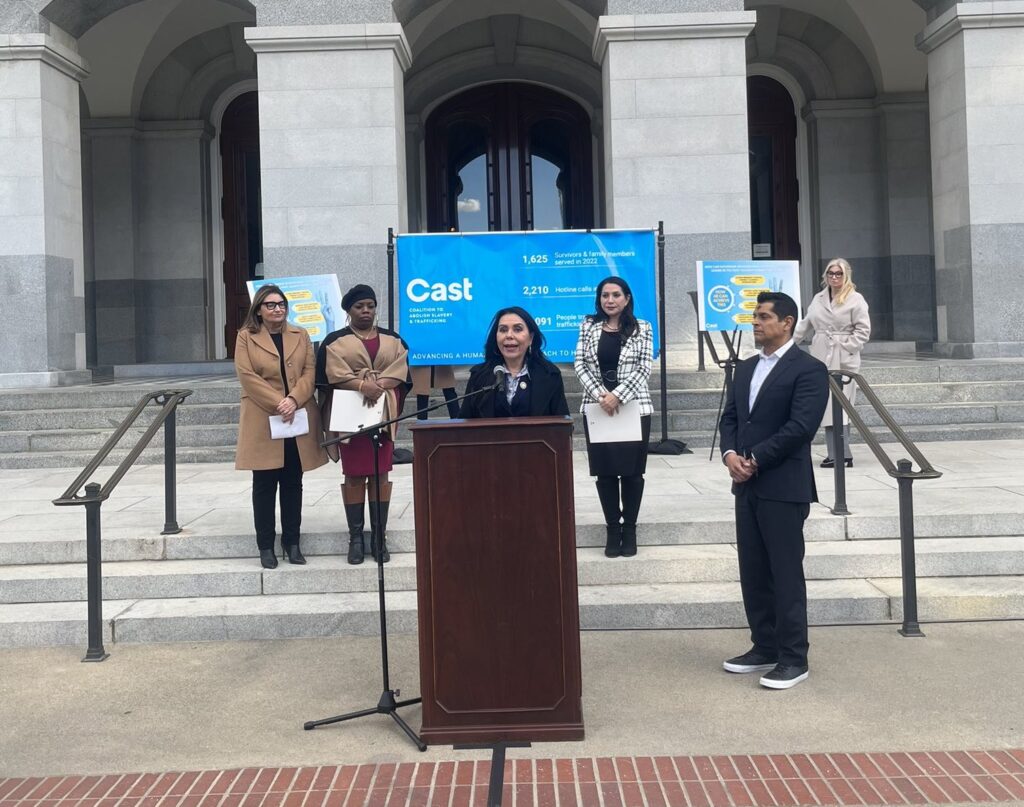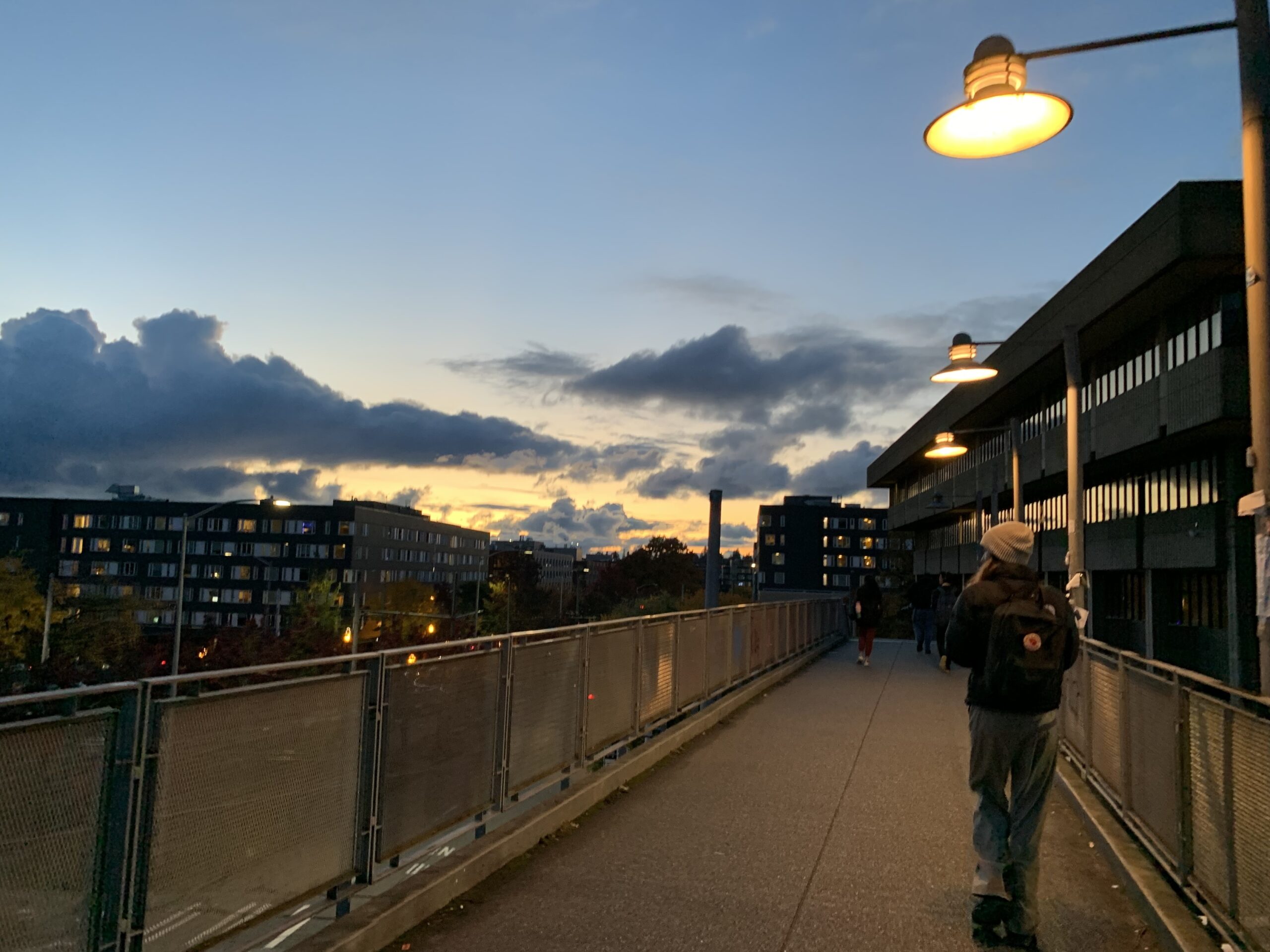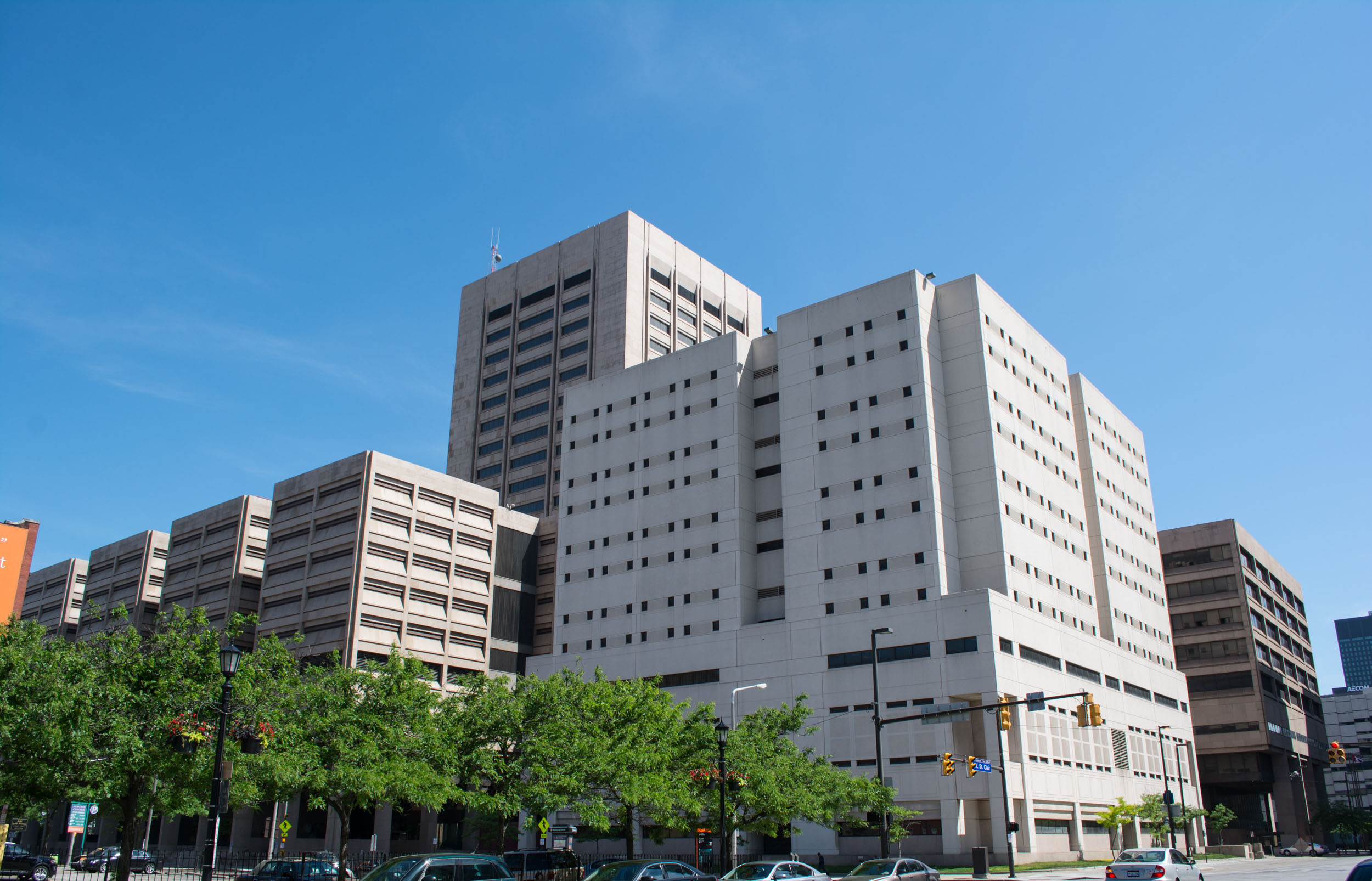(SACRAMENTO, Calif.) – California legislators joined forces with the Coalition to Abolish Slavery and Trafficking (CAST) to provide resources and funding for victims and survivors of human trafficking.
During a press conference at the state capitol on Feb. 22, advocates shared their plans to prioritize research, establish a budget for emergency support services and amplify the voices of survivors with a comprehensive legislative package.
“California needs a human rights and public health approach to prevent human trafficking once and for all,” said Kay Buck, CEO of CAST, a Los Angeles-based, non-profit organization with a mission to end modern slavery.
“We must address the lack of evidence-based,prevalence research and long-term comprehensive care by increasing funding and creating a statewide intersectional response,” Buck said. “When we do this, California will be the global leader it must be.”
CAST aims to help survivors of human trafficking through support services and advocacy. In its 2022 Impact Report, Cast reported they served more than 1,600 survivors and their families and received more than 2,200 calls to their 24-hour help hotline, which accepts information regarding potential human-trafficking cases.
According to the U.S. Department of Justice, human trafficking is a “crime that involves compelling or coercing someone to provide labor or services, or to engage in commercial sex acts.” Oftentimes, victims face harsh discipline for these actions, creating, or adding to, a criminal record, which can follow them for the rest of their lives.
During the press conference, Assemblyman Miguel Santiago (D-Los Angeles) stressed the importance of providing survivors with support services like housing, medical, and job assistance. Attendees cheered in agreement as Santiago shared his plans to request additional funding for victims and survivors of human trafficking. Santiago, along with members of the Human Trafficking and Sexual Predator Apprehension Teams, formed by Calif. Attorney General Rob Banta in 2021, allocated $30 million in grant funding for emergency services to support survivors through 2024.
This year, Santiago joined state Sen. Susan Rubio (D-Baldwin Park), Assemblywoman Blanca Rubio (D-Baldwin Park), and Assemblyman Timothy Grayson (D-Concord) to announce the legislative package, which includes three individual bills that request budget funding, prioritize research, provide victim and survivor protections, and enhance the enforcement of human and labor trafficking laws.
“My bill, SB376, will conduct critical prevalence research in three counties— one in southern California, one in northern California, and one in the Central Valley, to ensure that we have the information we need to move in a thoughtful, effective manner,” said Sen. Rubio.
The research will include an intensive look into the current data surrounding human trafficking in California and determine ways to prevent the growth and continuance of this issue. Also part of this package is AB1149, pioneered by Grayson and Asm. Rubio. The bill would create a task force also required to research, review and provide recommendations for protecting victims and survivors of human trafficking.
Asm. Rubio shared her bill, AB235, which aims to “establish a unit with[in] the civil rights department to collaborate and enhance labor trafficking enforcement with various California state entities.” The proposed Labor Trafficking Unit would investigate cases while protecting victims from criminalization during the prosecution of traffickers.
“Although human trafficking survivors are eligible for certain protections in the criminal legal system, they often face unique challenges and lack the means to effectively navigate their circumstances,” said Asm. Rubio. “Many survivors are too fearful to plead trafficking as a defense and end up being criminalized by the very system designed to help them.”
Lyresh Magee, a survivor of human trafficking, shared her personal story at the press conference. After losing her home, job and custody of her two children following the 2008 recession, the single mother found herself at a homeless shelter on Skid Row, an area in downtown Los Angeles infamously known as the homeless capital of America. Originally from Loma Linda, California, Magee started dating someone who she initially described as a “glimmer of hope” until he began exploiting her for commercial sex.
“I did not know rock bottom had a basement until I realized I was being trafficked,” Magee said. “My trafficker disguised himself as someone who could help me and my family…The more he asked of me, the more I didn’t realize myself and was living under a consistent threat of fear for my life.”
Magee eventually escaped sex trafficking and sought out help from CAST for its support services. She has since become a successful business owner and licensed cosmetologist, she said.
In 2021, the National Human Trafficking Hotline identified more than 10,000 cases of sex and labor trafficking nationwide, the majority of which originated in California.
“We hope that by creating a statewide coordinated strategy, California can take real steps toward ending this horrific crime and [help] victims find support [toward] justice and healing,” Asm. Rubio said. “This [legislative package] will make California a global leader in the fight to end human trafficking.”


